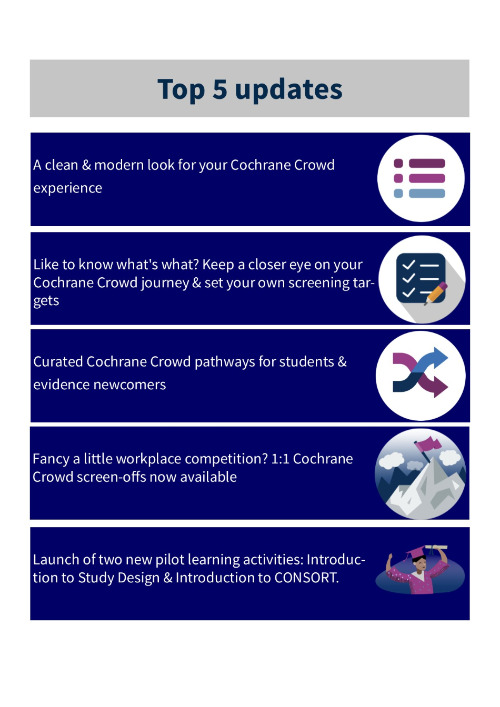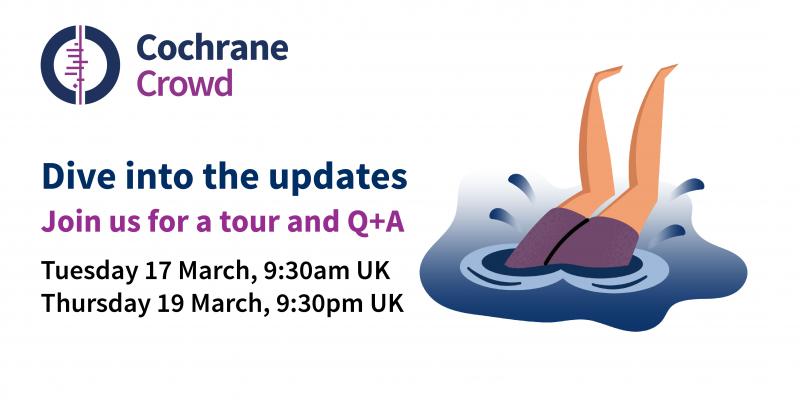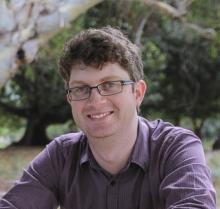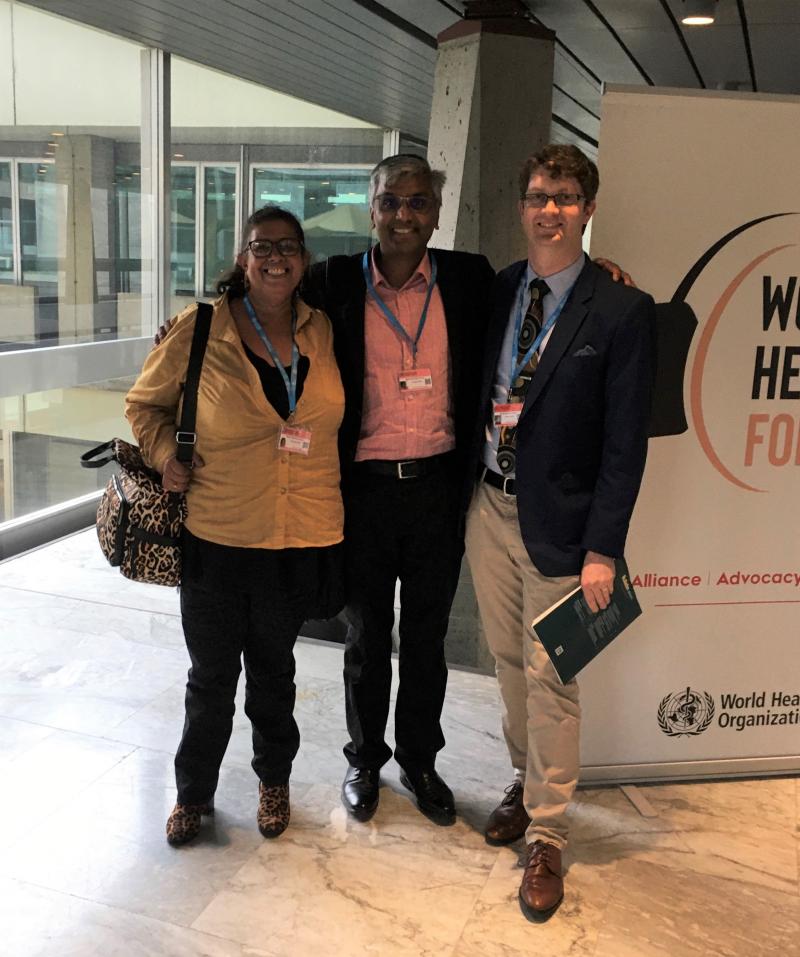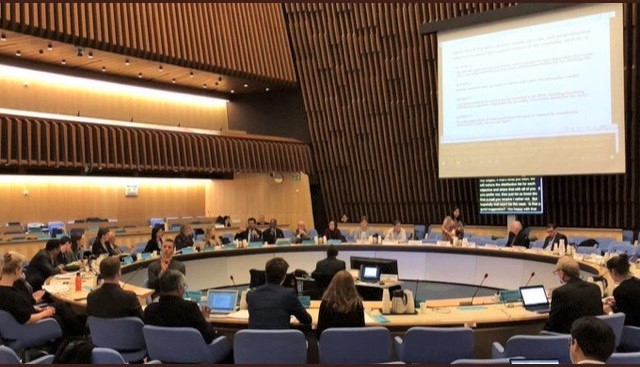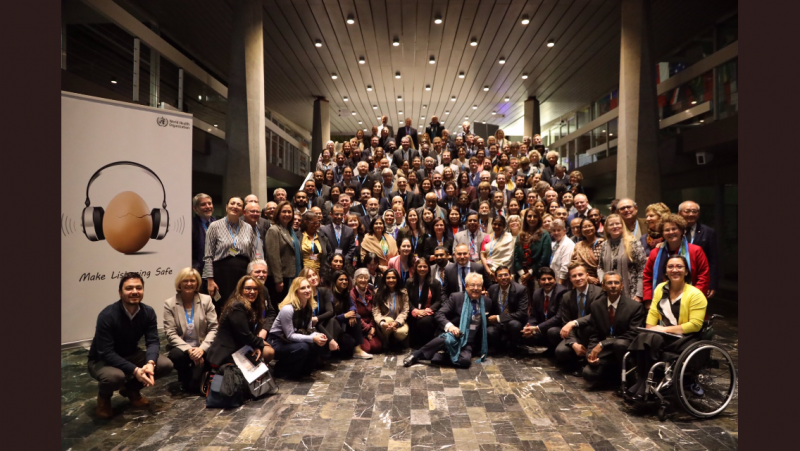We seek applications to five vacant positions on the Cochrane Scientific Committee; two positions are for those from within the Cochrane community, two positions are for representation external to Cochrane, and one position is for an early career researcher.
All positions start in May 2020. Please note the deadline is 25 March 2020.
This is an exciting opportunity for experienced health care researchers and systematic reviewers to contribute their skill set at an influential level within a leading evidence synthesis organization, or for an early career researcher to be mentored by the group.
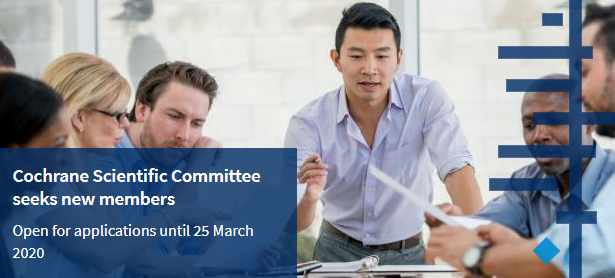
What is the Cochrane Scientific Committee?
The Cochrane Scientific Committee is involved in ensuring Cochrane stays at the forefront of methodological developments and that Cochrane Reviews use the most rigorous methods available to maintain the highest integrity of our research.
The full Terms of Reference for the Scientific Committee is available on the Cochrane Methods website.
As Cochrane diversifies the research questions asked it needs to ensure the methods related to those questions are robust and viable. The Scientific Committee supports this endeavour and is comprised of people in leading roles in the field with a proven track record of expertise in guiding methods development and implementation. We aim for a broad spectrum of methods expertise within the Committee and members must be committed to the highest standards of integrity within the science of systematic reviews.
Key roles and responsibilities include:
- Assess and recommend to the Editor in Chief what methods are appropriate within Cochrane by liaising with the Methods Executive, relevant Methods Groups, methodologists from the wider field and Cochrane Review Groups.
- Act as an independent forum to discuss, debate and agree current and future methodological or scientific issues, or priorities, in Cochrane.
- Advise the Editor in Chief by bringing together a wider perspective on methodological and scientific issues.
The Scientific Committee is comprised of up to 14 members:
- Six members from within the Cochrane community (leading members from our Methods Groups, Review Groups, Centres and Fields) with either a strong focus on methods research and development, or a strong focus on editorial skills and healthcare experience with strong methods interests.
- Six external members to provide a balanced independent focus. These people are senior experienced researchers leading within their specialist field, who have a wide knowledge of systematic review methodology, or senior experienced systematic reviewers, or editors, with a known interest and experience in methodological development. At least two of the external members will also represent stakeholders and end users of reviews e.g. agencies using Cochrane Reviews in guidelines, health research funders and those representing consumer interests.
- The Editor in Chief and Deputy Editor in Chief.
- An early career researcher who is developing a relevant methodological track record (mentored, observational position).
The terms for full committee members will be three years and the term for the early career researcher will be one year, with annual nominations for vacancies each year. Once elected, full members (not early career researchers) can request to extend their tenure by an additional term, which is subject to Committee approval (there is a two-term limit for Committee members).
Details of the open positions on the Cochrane Scientific Committee
We are looking for two members from within the Cochrane community, two members external to the Cochrane community and one early career researcher to join the Scientific Committee in May 2020.
It is essential that applicants have a strong methodological interest and experience in either methods research or the application of methods or both. This will include a broad spectrum of research synthesis methods. We are also looking for applicants with additional skills in senior management of evidence producing systems, e.g. guidelines; experience with similar scientific or research committees; and health research funding, grant management or health policy. In addition, we also welcome people with relevant technological skills as technology advances within the systematic review field.
Selection will also consider geographical location, gender and language diversity and any other equity considerations.
Role commitment:
- A term of office for three years for full members and one year for an early career researcher
- Participation in up to three teleconferences per year.
- Attendance at possible annual face to face meeting.
- Support all activities including statement or report writing.
- 5-8 days per year.
We are unable to provide financial remuneration for these positions, although we would cover any expenses incurred in the course of Committee activity, such as travel and accommodation, based on prior agreement.
Please note following a successful application, members will be required to complete a conflict of interest disclosure. Cochrane’s Conflict of Interests and Commercial Sponsorship Policy is available here.
Apply here




